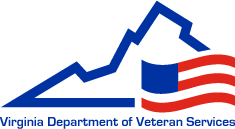Findings from Virginia Tech-led study help VWWP increase services to veterans
Source: Andrea Brunais
Virginia’s population of veterans is 800,000 strong, more than 250,000 having served since 2001 – the highest ratio of any state. According to a RAND Corporation study, one-third of these veterans may be affected by post-traumatic stress disorder (PTSD), major depression, or traumatic brain injury (TBI).
It’s common knowledge that many service members returning from Iraq and Afghanistan suffer from PTSD and depression. However, a Virginia Tech-led survey of 2,000 Virginia veterans found that U.S. military screening procedures allow veterans with diagnosable injuries to slip through the cracks.
Click here to read the full report.
The study was commissioned by the Virginia Wounded Warrior Program of the Virginia Department of Veterans Services to help develop strategic direction and effective allocation of resources.
After returning from deployment, military personnel are screened for mental health and other health-related concerns. But, according to both veterans and the professionals who serve them, the effects of injuries such as PTSD and TBI can surface three to six months later, says Mary Beth Dunkenberger, senior program director with Virginia Tech’s Institute for Policy and Governance and lead researcher on the study.
According to the information gathered through focus groups, the U.S. military’s current demobilization process discourages returning military personnel from recognizing or admitting to the symptoms of PTSD and TBI. Admissions may delay reunification with family members while mental health and brain injury assessments are conducted. Mental health concerns can also wreck havoc on a military career.
The Virginia Tech survey looked at employment, life satisfaction, substance-abuse treatment, and other health problems. The survey included a mapping feature showing locations of key veterans’ services, identifying areas with the biggest deficits in state and federal government services. The maps show a large gap in southwestern Virginia, where rates of depression and PTSD are high but community-based services are less available.
“What the map shows is that there are indicators of depression showing up in the population of veterans where there is a marked lack of service providers,” Dunkenberger says.
“The study is valuable because it helps us make sure services reach veterans who need them,” says Cathy Wilson, executive director of the Virginia Wounded Warrior Program. “We know that severe brain injury, depression, and PTSD are problems for veterans in Virginia, and it’s unacceptable for society to let those men and women suffer when there are ways to help. Using this data, we will be able to increase service provision in areas where it is needed most.”
For example, a study finding showed high rates self-reported incarceration, homelessness, and mental-health diagnoses among the population of veterans in southwestern Virginia. These findings were used to support a grant proposal to the U.S. Health Services Resources Administration, resulting in a $300,000 annual award for three years. The funds, awarded to the Virginia Wounded Warrior Program in collaboration with the Virginia Department of Health, will expand treatment available to veterans living in the rural counties of southwestern Virginia.
Other findings from the survey:
- Veterans want more help with employment, training, and education
- Health-care providers need to be more “culturally competent” to understand and treat mental health and brain injury conditions in veterans deployed to combat areas
- Lack of a centralized services clearinghouse creates frustration and confusion for veterans and their families
- Stigma still exists in the minds of veterans about asking for help with psychological issues
- Virginia’s high and growing rate of female veterans may pose extra challenges in terms of service deficits and needed system changes
Solutions suggested by the Virginia Tech researchers include:
- Centralized case managers and one-stop resource centers for veterans
- Partnership and coordination between service providers
- More funding for community services
- Employment training and education made more readily available and targeted to the veteran population
“We’ve already used data from the study to obtain a significant federal grant,” Wilson says. “But this is just the tip of the iceberg. We’ll use the data from this study for years to come to pinpoint the types of services needed most and the areas of greatest need. I’m sure that other state and federal agencies will be interested in using the data from this research as well.”
Virginia Tech’s Center for Survey Research handled the mechanics of the survey, while Virginia Tech’sCenter for Geospatial Information Technology did the mapping.
Virginia Tech’s Outreach and International Affairs supports the university’s engagement mission by creating community partnerships and economic development projects, offering professional development programs and technical assistance, and building collaborations to enrich discovery and learning – all with the overarching goal of improving the quality of life for people within the commonwealth and throughout the world. Outreach and International Affairs leads Virginia Tech’s presence on five continents; its regional research and development centers across the commonwealth focus on graduate education and professional development. Blacksburg-based centers are dedicated to student engagement, language, policy, and governance.
Photo caption:
From the Virginia is for Heroes Conference in Richmond this past February, panelists are, from left to right, Shannon Maxwell; retired Lt. Col. Tim Maxwell; Martha Mead of the Virginia Wounded Warrior Program; Mike Rindorf of the Virginia Wounded Warrior Program; Holly Rindorf; and Lt. Eric Malmstrom. They were on a panel discussing combat stress and TBI. The Maxwells became advocates for wounded warriors after Tim suffered a traumatic brain injury in Iraq.


